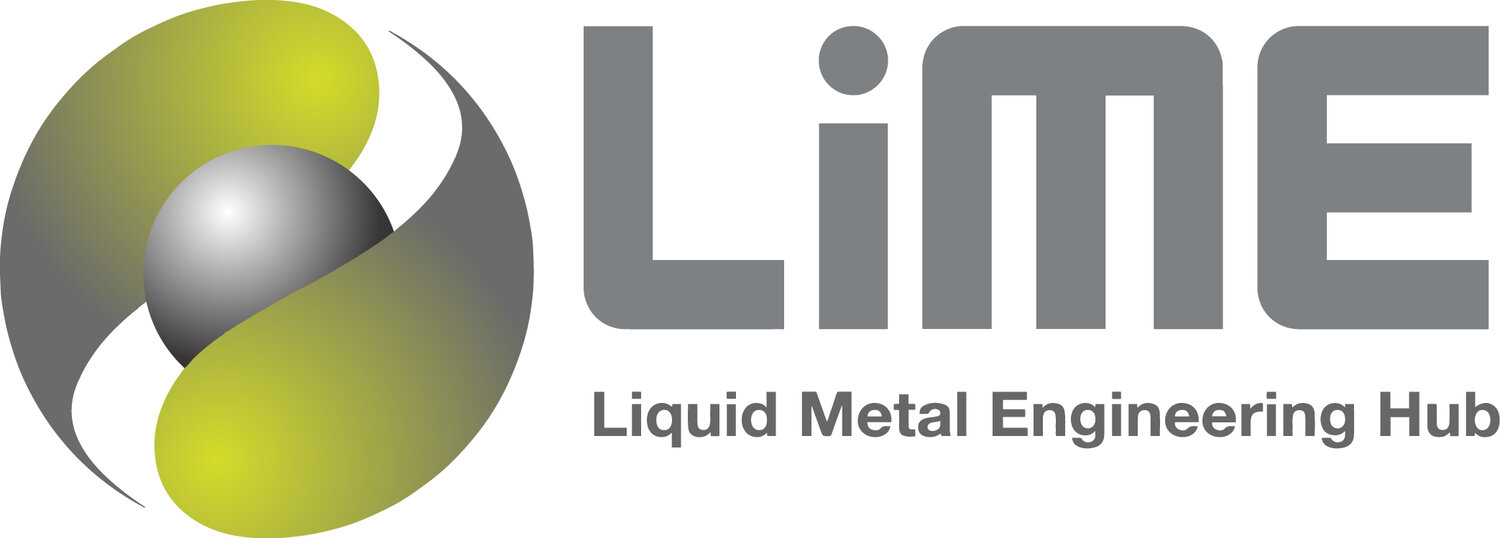Research
The Hub's research activities are divided into platform research that focuses on fundamental science and user-led research driven by our industrial partners. All of our activities are detailed and summarised in our Annual Report.
Research Programme
The overall research programme of the Hub is illustrated below. Secondary Al containing inclusions and impurities is our starting material. Guided by thermodynamic assessment, we develop a novel multi-functional melt treatment process to deliver a refined Al melt with minimised inclusions, impurities and hydrogen content. Instead of further refining to eliminate the residual inclusions and impurity elements, our research approach is to mitigate their harmful effects on the chemical, physical and mechanical properties of recycled Al-alloys.
Our overall research programme is organised into two main research areas: platform research area and grand challenge research area (referred to as platform and grand challenge research themes in the original proposal). In our platform research area we minimise the harmful effects of inclusions and impurities through positive use of inclusions to enhance heterogeneous nucleation and through effective control of the crystal structure, morphology, size and distribution of intermetallic compounds (IMCs). In our grand challenge research area we maximise the performance of secondary Al-alloys through both process and alloy innovation. We also develop recycling-friendly Al-alloys and sustainable solidification processing technologies to facilitate closed-loop recycling.
Research Themes
Fundamental Research
The current fundamental research projects include:
A molecular dynamics study of structural templating during heterogeneous nucleation
Effect of physical and chemical properties of the substrate on prenucleation
Monte Carlo simulations of solute segregation at the liquid-substrate interface
Elemental adsorption at the solidsubstrate interface and its effect on heterogeneous nucleation
Nucleation and growth crystallography of Mn-bearing intermetallics in magnesium alloys
The nature of native oxides in Mg with various alloying elements
Prediction of grain size during solidification
Studying grain refinement in Al alloys using x-ray radiography and machine learning
Understanding intermetallic compound nucleation and growth using synchrotron x-ray radiography
The morphology and distribution of Al8Mn5 in high pressure die cast AZ91
An anti-trapping current for use in phase-field simulation with arbitrary (CALPHAD) thermodynamics
Phase field simulation of needle crystal growth
The critical factor for the iron tolerance limit in magnesium
To download the individual summaries please click on the title above or alternatively you can download all of LiME's research summaries in the LiME_Annual_Report_2018.
The LiME Hub's updated research themes can be found in the LiME Annual Report.
Alloy Development
Current projects in alloy development include:
Development of high strength multicomponent aluminium based die casting alloys
Progress in the development of new Mg alloys for the low force TRC process
Strength improvement in high pressure die castings for automotive components
Aluminium alloys for engine components working at elevated temperatures
High modulus aluminium-based materials for automotive applications
The LiME Hub's updated research themes can be found in the Annual Report.
Technological Innovation
Current projects focusing on technological innovation include:
Overview of high shear melt conditioning (HSMC) technology for processing Al and Mg alloys
Numerical modelling of high shear melt conditioning (HSMC)
De-ironing of aluminium scrap by high shear melt conditioning technology
Towards a short homogenisation process for DC cast billets of wrought Al alloys by MC-DC casting
Improvement of macrosegregation and second phases in Mg Alloys by MC-DC casting
Numerical modelling of the melt conditioned direct chill (MC-DC) casting process
Melt conditioned twin roll casting (MC-TRC) process for Mg alloy flat products
Multiscale modelling of microstructure evolution during twin roll casting
Improved defect control and mechanical property variation in HPDC A380 alloy by HSMC
Modelling of the high pressure die casting process
The LiME Hub's updated research themes can be found in the Annual Report.
Industrial Application
Current industrial focused research projects include:
High strength and ductility cast aluminium alloys
Recycled aluminium through innovative technology (REALITY)
CAAHS (Carbon Aluminium Automotive Hybrid Structures)
High shear melt conditioned direct chill casting a Constellium case study
Melt conditioned direct chill (MC-DC) casting of 6xxx series Apple Inc. Al-alloys
Melt conditioned direct chill (MC-DC) casting of large scale 7xxx series Al-alloy at Arconics, USA
The LiME Hub's updated research themes can be found in the Annual Report.

